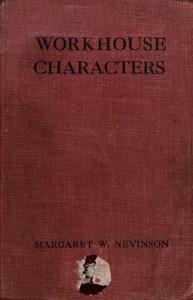Read this ebook for free! No credit card needed, absolutely nothing to pay.
Words: 21916 in 6 pages
This is an ebook sharing website. You can read the uploaded ebooks for free here. No credit cards needed, nothing to pay. If you want to own a digital copy of the ebook, or want to read offline with your favorite ebook-reader, then you can choose to buy and download the ebook.


: The Friendly Club and Other Portraits by Parsons Francis - Authors American; Hartford (Conn.) Biography
eems to have been happier in this work of enormous detail than at any other time of his life.
But it was as a geologist that his most valuable practical work was done. His "Report on the Geology of Connecticut," published in 1842, was the result of five years of arduous labor and is a sufficient monument for any man.
"While engaged in this survey," he wrote, "I can confidently say that I have been laborious and diligent. While traveling, it was my practice to rise early, in the longer days generally at dawn; in the shorter generally I got my breakfast and was on my way by daybreak, I continued, scarcely with any relaxation, as long as I had daylight and then was generally obliged to sit up till midnight, not unfrequently till one o'clock A. M. in order to complete my notes and arrange my specimens. This was continued, not only week after week, but month after month, almost without cessation."
Under the law Percival could not be paid till his report had been approved by the governor. It is characteristic of the whimsical geologist that he refused to submit to this approval by one whom he considered incompetent to pass upon his labors and it was only by the ruse of a friend who got possession of the report and presented it to the governor, who at once approved it, that Percival secured his pay.
This work brought Percival a high reputation as a geologist. He was engaged by the American Mining Company to investigate the lead deposits in Wisconsin and this in turn resulted in his employment by that state to make a geological survey similar to that of Connecticut. He had made his first report and was engaged upon his second when he became ill and in May, 1856, he died and was buried in Hazel Green, Wisconsin. "Eminent as a Poet," runs his epitaph, "rarely accomplished as a Linguist, learned and acute in Science, a Man without Guile."
During his employment in Wisconsin his friends had bought a lot and built a house for him in New Haven. It was a queer structure, built after the poet's own plans, with the entrance at the rear, blind windows at the front, and of only one story in height. He was looking forward to spending here his last years, close to his college, with his few intimate friends, surrounded by his books. During an interval in his Wisconsin employment he came to New Haven to inspect his future home and is said to have broken down completely as he was compelled to leave by the duty that called him westward.
He was a strange creature, impossible to get along with, handicapped by an over-sensitiveness that led him into resentments that often held the implication of ingratitude, and with a constant grudge against the world. He should have been endowed and relieved of all the detail of life. Even then it is doubtful if he would have produced great poetry, unless he had been rigorously trained by some dominant master to condense, revise and work over again and again his diffuse, sentimental and dreamy verses. A few of them retained for a time a certain vogue and then gradually passed into oblivion. Perhaps the two that were longest remembered were "To Seneca Lake" and "The Coral Grove." It is an odd thing, but some selections from a boyish effort entitled "Seasons of New England," hitherto generally cited as evidence of his youthful absurdities, would make excellent examples of the free verse that nowadays is taken so seriously. In this respect, at least, he was ahead of his time.
In his review of the "Life and Letters" Lowell seems rather dogmatic and intolerant, but with his inevitable insight and art of statement he crystalizes into one sentence the whole trouble with Percival. "He appears," writes Lowell, "as striking an example as could be found of the poetic temperament unballasted with those less obvious qualities which make the poetic faculty."
It should be recorded that children loved this old bachelor in spite of his eccentricities and that with them he seemed to feel unrestrained and free, forgetting the shyness that formed an insuperable barrier to ready friendship with adults. In our Connecticut history he should not be forgotten and if any of the spirits of the departed revisit the glimpses of the moon this strange apparition ought sometimes to be met, driving his phantom buggy through forgotten lanes of the state he loved, or with his hammer and bag of specimens, climbing on foot the hills and ledges he knew so well.
"Ah, pensive scholar, what is fame? A fitful tongue of leaping flame; A giddy whirlwind's fickle gust, That lifts a pinch of mortal dust; A few swift years, and who can show Which dust was Bill, and which was Joe?"
He does not deserve to be forgotten. Born at Ridgefield, Connecticut, in 1793, he died at New York City in 1860. For twenty-four hours his body lay in state in St. Bartholomew's Church where crowds passed his bier and at Southbury, Connecticut, where he was buried, groups of children preceded the coffin and strewed flowers in its path.
It was a fitting and touching ceremony, for all his life he had been the friend of children. It was almost entirely for them that he wrote his two hundred books, of which he estimated, five years before his death, that seven million copies had then been sold, including, we assume, those editions that had been translated into nearly every modern language, even Greek and Persian.
Free books android app tbrJar TBR JAR Read Free books online gutenberg
More posts by @FreeBooks

: Workhouse Characters and other sketches of the life of the poor. by Nevinson Margaret Wynne - Poor England London; London (England) Social conditions; Workhouses England London






